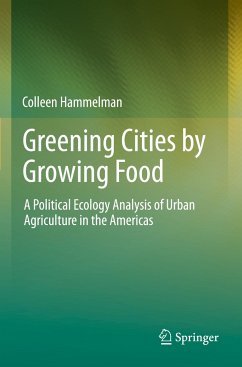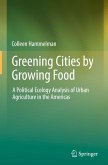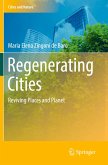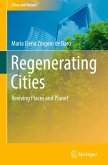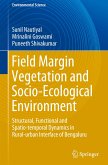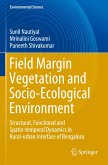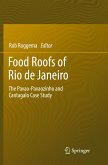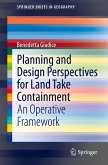This book examines how urban agriculture (UA) is valued in the sustainable city. Through a comparative examination of UA projects in four cities across the Americas - Rosario, Argentina; Toronto, Canada; Medellín, Colombia; and Charlotte, USA - the book illustrates local manifestations of the socio-ecological dimensions of the global food system, and traces theoretical and empirical explanations for the impact of global political economic structures (sustainable neoliberalism) on local efforts to promote social and environmental goals through UA. The study contributes to literature on UA, sustainability, and urban geography through examining the ability of marginalized communities to compete for land on which to grow produce in contribution to their food security, livelihoods, communities, and environments, and will be of interest to UA practitioners, students, and scholars of geography, sociology, sustainability studies, environmental studies, and food studies.
This project is distinctive for its global - local orientation that uses local cases to shed light on global phenomena relating to sustainability, neoliberalism, and policy mobilities. It is also important for its qualitative approach to understanding the perceived value of UA. Throughout the research, stakeholders emphasized the qualitative values of UA (such as social integration for new immigrants) that are not easily captured in statistical representations of the economic value of a given piece of urban land. As such, this book seeks to contribute to understanding about the contributions UA makes to a city beyond the food produced, and fill gaps in literature regarding the local manifestations of global policy in UA projects seeking to address both sustainability and social justice objectives.
This project is distinctive for its global - local orientation that uses local cases to shed light on global phenomena relating to sustainability, neoliberalism, and policy mobilities. It is also important for its qualitative approach to understanding the perceived value of UA. Throughout the research, stakeholders emphasized the qualitative values of UA (such as social integration for new immigrants) that are not easily captured in statistical representations of the economic value of a given piece of urban land. As such, this book seeks to contribute to understanding about the contributions UA makes to a city beyond the food produced, and fill gaps in literature regarding the local manifestations of global policy in UA projects seeking to address both sustainability and social justice objectives.

